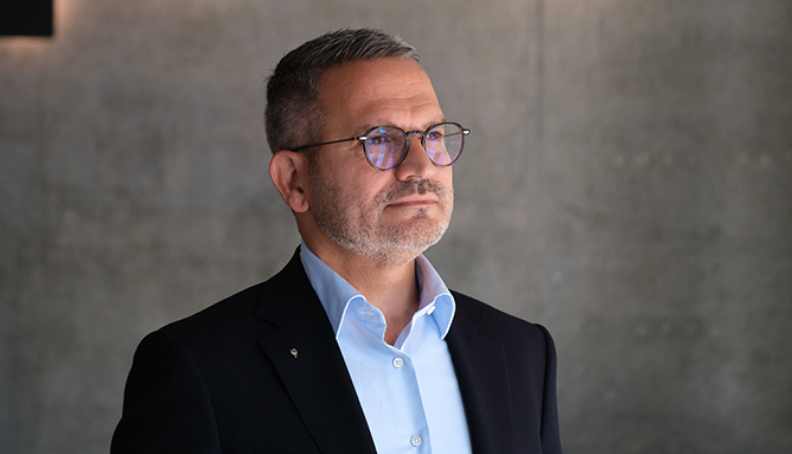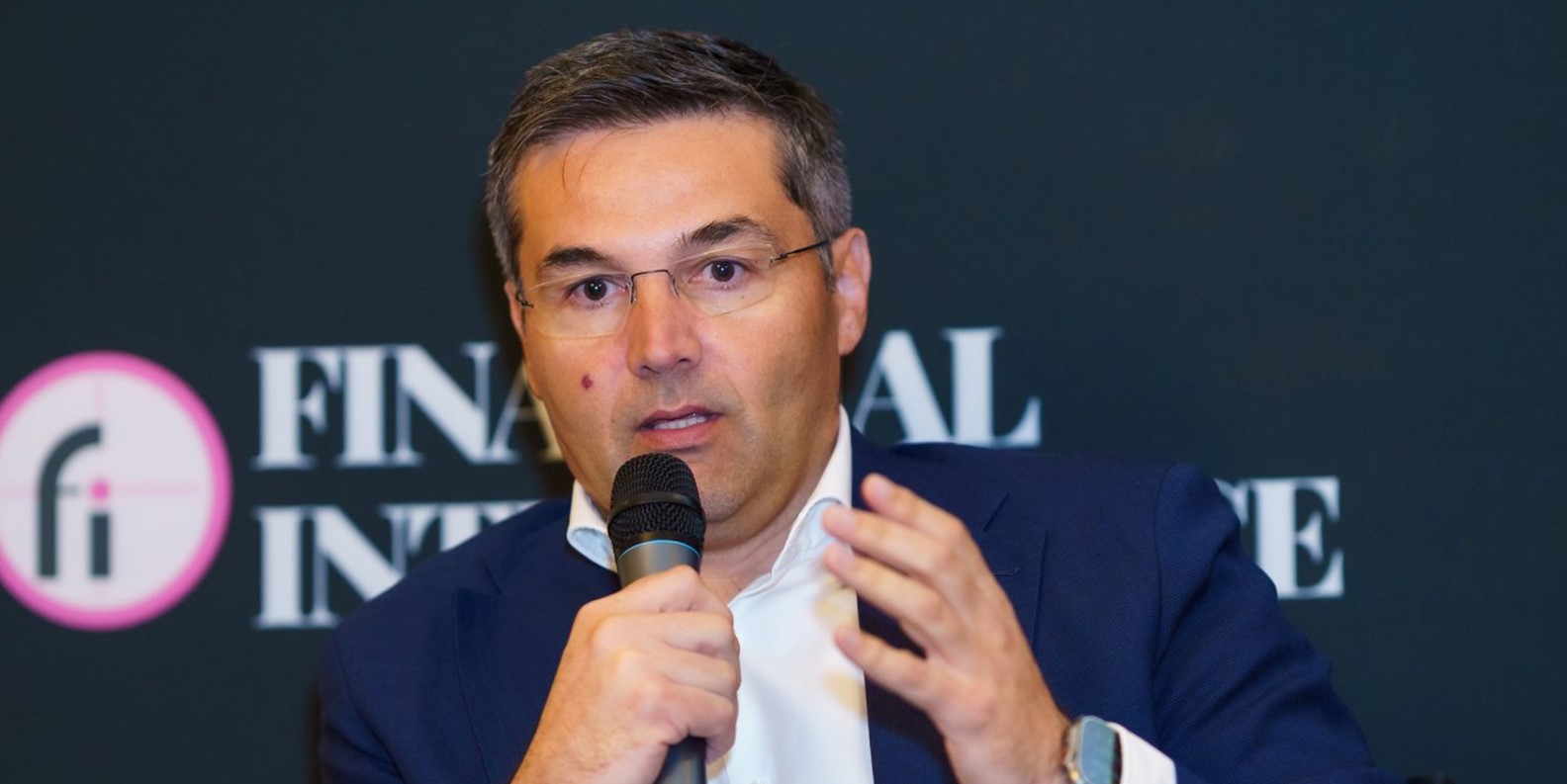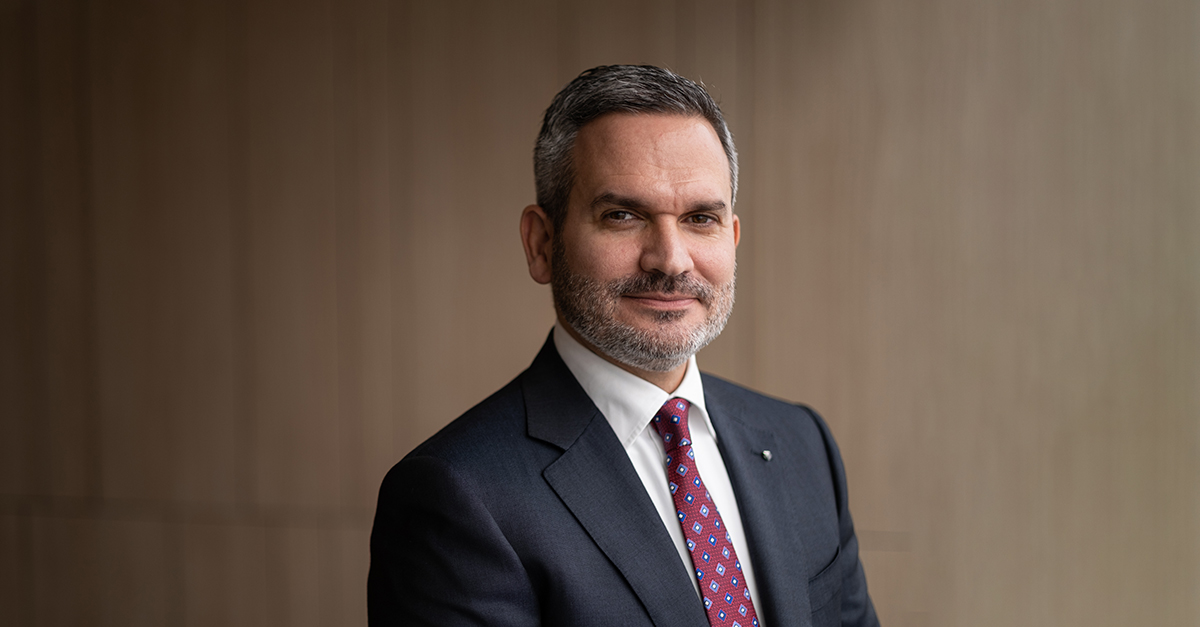Ömer Tetik: ”At BT, in the last 10 years we have more than quadrupled our outstanding loan portfolio”
16 January 2023 Reading time 17:00 minutes

Ömer Tetik, CEO of BT, gave an exclusive interview to Ziarul Financiar on the economic situation in 2022 and the outlook for the new year. Some of the topics discussed were about:
- the impact of the interest rate increase on customers and the bank;
- selective financing on the loans’ market;
- plans for 2023;
- bank capitalization in the new economic paradigm.
1. How was 2022 for the bank, what went well, where did things get complicated, where was the biggest problem?
It has been a tough year for the financial market, being one of the most volatile years we have experienced in recent history, but we closed the year well, even much better than we had hoped at many points in 2022.
We started the year with excess liquidity in the banking system, with interest rates of 2% on 6-month deposits, for example, and yields of 2-3% on government securities. In just a few months, we have managed a steep increase in the costs at which we finance ourselves, from that 2% to 7-8% and a radical increase in the yield of government bonds, given that Romania is the European country with the highest percentage of government bonds held by banks. The increase in yields on government securities meant the depreciation of the portfolio of securities held by banks, but also a high opportunity cost - banks pay 7-8% on deposits and receive 2-3% on government securities purchased a few years ago.
Much of this turmoil has not been seen on the main street, but it has had a strong impact on banks and the financial system. I think the main achievement of the banking system in 2022 is that it acted as a shock absorber, took these shocks and didn't pass them on to the real economy.
We had many challenges, quite different. Right after the war in Ukraine started, we faced the customers’ anxiety and appetite for cash withdrawals. A similar situation was at the beginning of the pandemic. BT continued to be the only big bank that still assumed large-scale cash processing. We took on the cash burden - at a time when many banks were closing units or limiting the use of cash over the counter, our units processed huge amounts of cash precisely to help customers in a time of anxiety, so to speak.
Then we started to face rising funding costs, which affected expenses quite heavily, but also a general increase in other types of expenses - including a steep increase in salary costs and in general in the costs of running the bank. Even so, we are closing the year well.
2. What has been the impact of the increase in interest rates on the bank's business and balance sheet, on customers, whether companies or legal entities? Where is the increase in interest rates felt the worst?
This increase in interest rates in lei has not structurally affected the banks' appetite to lend, but rather the cost of financing. Otherwise, obviously, we had an immediate impact on our costs and then an impact on the costs at which we provide new financing, and secondarily, on the costs of customers with outstanding financing. The steep dynamics particularly in the evolution of interest rates on loans required BT and our customers to have a much closer and more proactive dialogue with customers - we kept close to our customers so that we could be sure that their businesses remained economically viable as funding costs increased.
In multiple market segments, our pricing - both for existing customers with outstanding loans and for new customers - has increased by less than the increase in the bank's funding costs. This has happened both because of the high competition among banks for good customers in the market, but also because we have important sectors for our market positioning where we need to maintain our leadership and increase our market share. I'm talking about SMEs, agriculture, healthcare and of course retail lending.
Strictly related to individuals - retail - we have seen quite radical changes in our customers behavior - a greater appetite for savings, but also a reduced interest in buying properties - which was immediately seen in the volume of mortgage lending.
3. How did the state-guaranteed lending programs go? Is there a specific program that would be needed in the market?
The year 2022 was a record year, based on the volume of loans granted through the government's SME Invest programme, compared to 2020 and 2021. Through BT we granted almost 4,700 loans worth more than 3.1 billion lei. We are ready to continue the programme at the same pace this year. It is a broad programme that boosts investment, provides support to areas of interest - such as agriculture, manufacturing, construction, but also puts emphasis on innovation.
We are happy to be the main partner of these programs and believe they are important for Romania's economy - we need programs that generate economic growth by increasing the access to financing. In addition, everywhere in the world - for small and medium-sized companies - the cost of capital is important and a differentiating factor. These programs help reduce the cost of financing for small and medium-sized companies.
4. What are the bank's solutions for customers who have problems - companies and individuals?
BT has always been there for its customers - this has been a differentiator for us since the economic crisis of 2008. What is important for the customer is that, as soon as they notice imbalances impacting the financial area, they consider the bank a partner and call to find solutions together. The aim is to help clients to get through the period of reduced income. We work with a toolkit that contains several possible solutions - temporary reduction of monthly repayments, downgrading, maturity extension or rescheduling of arrears.
5. How does the bank manage the portfolio of government securities affected by rising interest rates and ultimately impacting capital?
Romania is the European country with the largest exposure to state financing - 25% of banks' assets are invested in state financing instruments. In our case, we have taken on an even higher exposure to state financing instruments, but we have sought to protect ourselves from the context of the yield curve turning and especially to have a much shorter average maturity of around three years.
The fact that we have opted - assumed - for short maturities has helped us to keep the overall portfolio depreciation much lower, but the impact is still large and comes mainly from the opportunity cost of paying customers much higher interest rates on deposits than the returns we earn on securities.
Currently, there are a few elements that represent minuses of the government securities market and financial instruments in general, that affect us as well. First, it would be ideal for the government to correct its deficits through more efficient tax collection, and then to finance its deficits mainly in domestic currency because it better manages subsequent risks related to the exchange rate and public debt itself. But the Romanian government bonds market is small and lacks depth, the main players in the market are banks and pension funds - so financing in lei is not always possible, especially at the volumes the current deficit requires.
In times of economic uncertainty, instability or recession, it is very important for banks to have resources available to finance the economy and thus revive the economy and start a new growth cycle.
Depreciation of the securities portfolio, driven by rising interest rates, is eating away these resources and we are now seeing large banks preoccupied with issuing subordinated bonds, which can be assimilated into capital and used to increase lending. I think it is very important to see both a development of the government securities market, but above all a stability of quotations. As I was saying, this requires improved collection and public expenditure reform.
6. What about the 4.4 billion lei bond issuance program for capital needs?
BT shareholders approved a general framework for the issuance of subordinated bonds, eligible MREL. The framework includes a maximum amount, within which we have flexibility to obtain the most favorable terms in the market. Especially as we are talking about a multi-year program, we have no immediate need for these resources either for the bank's capitalization or for liquidity, as we have a very good loans to deposits ratio. We have ambitions to grow the bank and to strengthen BT Financial Group. To support this growth we need all available resources (including capital raised through bonds). We will decide depending on the market conditions when we can get the best prices for these issues. We are in no hurry.
7. Does the bank need a capital increase or will it secure its capital through subordinated bonds?
At BT, we have grown rapidly and will continue to grow - in the last 10 years we have more than quadrupled our outstanding loan portfolio from 15.5 billion lei to 64.4 billion lei. To support this growth, we have capitalized profits of over 5.1 billion lei.
We have ambitious growth plans for the coming years, and to support them we will need capital - which may come from profit incorporation or bond issues. It will probably be a mix.
It is important for the Romanian economy and for the entire population that banks are profitable and well capitalized, so that they can finance the economic recovery by granting loans.
The 5.1 billion with which we have capitalized in recent years is a huge amount, which has a much greater multiplier effect on the financing of the economy, with this additional capital we have the opportunity to grant loans - for the economy - of tens of billions of lei.
8. What are the first estimates for 2023? What do bank analysts say about the macro data?
In 2022 we saw a fundamental change in the macroeconomic environment, the kind of radical change that happens every few decades. We went from an economic environment based on very low interest rates, low inflation and globalization to an economic environment where we have hyperinflation, high interest rates and near shoring. It is a fundamental and structural change, and the new economic benchmarks are here to stay for a long time. It is a paradigm shift that we have to get used to and adapt to. The change in these big benchmarks - inflation and interest rates - will obviously affect other indicators in the economy, from real estate asset prices to private consumption.
9. What are the forecasts for the bank for 2023?
We are optimistic about BT's progress in 2023, but cautiously optimistic. To use a metaphor - we're walking on ice, so we prefer to take baby steps. But we are moving forward.
We are well-positioned in our relationship with our customers in several segments and we see that the bank is appreciated by the customers and they like working with us. We have a very good position in the micro, SMEs, and mid corporate market, but also in the specialized sectors - medical and agriculture. Some of these will benefit from public investments and European funds, and we want to capture value here. We have a big gap in comparison to Western Europe in the medical field - investment is needed and we have the know-how to help our customers. Another important topic on the public agenda is food security - we are leaders in Agri-finance and we will continue to grow and benefit from the major investments that are coming here too.
On the retail side, we have a few areas where we have reached network effects - BT Pay is the banking and payments app with the most users in Romania, and STAR is the largest ecosystem of retailers and credit cards. We have great potential to grow in segments covered by BT Group companies - from leasing to pensions to asset management. We are optimistic, although, as mentioned, we expect volatility and the fundamental changes in macroeconomic benchmarks to be long-lasting. We have the best team and the most committed customers. This is most important in banking and services in general.
10. How will interest rates on lei evolve? When will we see a stabilization? When will they start to fall?
As I said, we believe that 2022 has seen a radical and lasting change in the macroeconomic benchmarks - a paradigm shift - and I don't think we will return to the pre-2022 status quo any time soon. Interest rates on lei also depend on many external factors, which we cannot estimate exactly, but they are unlikely to fall radically, even in an ideal scenario. That is why we believe that the most likely scenario is a stabilization - which we already see - followed by a gradual and moderate decline over the next few years.
11. Which sectors are the bank targeting for lending in 2023?
Banca Transilvania will continue to be the main lender of the Romanian economy and we are targeting most economic sectors. Obviously, SMEs and medium-sized companies are in our focus because here we have unique competences in the market and our extensive network helps us to reach opportunities other banks cannot.
Moreover, we look at the agribusiness and healthcare, in both areas we have a very good market position. We come up with viable solutions based on the specifics of each sector and we want to take advantage of the huge financing needs that exist here. We are also the leading lender of commercial credit - including through our factoring and reverse factoring programs - and we want to grow further.
On the retail side we have a very good position on the cards and payments market. We have the most attractive merchant network and the best loyalty programme built around merchants - this will help us to grow further in the credit card area - an area we see as resilient, even if the appetite for other types of credit declines.
12. What is the bank's appetite for real estate in 2023 - developer finance and retail lending?
We will continue to finance real estate projects. For selection, we look at the developers' capacity and experience in delivering projects, financing urban redevelopment and energy efficient projects. It is also important to look at projects that bring added urban or social value to the municipalities in which they are developed. Therefore, we are looking at quality projects that are viable as people's preferences shift towards higher quality living spaces.
In terms of crowd-funding of purchases, this is continuing and we have the appetite to move forward, but the slowdown in demand is evident - both amid uncertainty and with the rise in IRCC reducing the amount people are falling into. We continue to lend on mortgages, terms are fairly standardised across banks, the differentiators in the market are more about quality of service and interest rate.
13. What is the bank's appetite for a new bank or portfolio acquisition of loans, deposits, customers?
As you have seen over the recent years, we are open and attentive to possible acquisition opportunities - either in banking or in complementary areas, but we are not in active discussions right now.
14. What are the targets for the leasing activity after acquisitions?
We have three major and very ambitious goals at BT Leasing - to become a leader in the leasing market, to increase the uptake of leasing by the BT Group customers and to encourage the transition to green economy.
We have made three acquisitions in recent years - ERB Leasing in 2018, Idea::Leasing in 2021, followed by Țiriac Leasing last year, for which we will soon announce the merger with BT Leasing. Each one comes with something and helps us with one of the mentioned objectives.
15. Additional taxes are being introduced all over Europe, and now there is talk of additional taxation of bank profits. What is the situation in Romania?
There have been discussions in several European countries, but apparently there are more disadvantages than advantages, and the benefits are limited. So far, a very small number of countries have taken real steps and introduced such taxes. Romania is an emerging country, it needs capital to develop. To build hospitals, schools, roads with European funds we need co-financing. In other words, we need public investments in infrastructure and private investments in the medical and agricultural sectors. To increase life expectancy and quality of life we need investments in state and private healthcare. To improve our food security and lower food prices we need investment in agriculture and food processing.
For this to happen, banks need to be well capitalized so that they can finance the private sector and co-finance public investments. In addition, PNRR projects need co-financing, otherwise they cannot be implemented.
In the banking system, profit is a source of capital because profits are capitalized. To give you an idea - with some rough figures - under the current capital requirements, which are very strict, at BT alone we need to capitalize more than 1 billion lei every year, just to be able to increase funding by about 10% per year.
Capitalizing profits, of banks in general, brings increased funding opportunities from banks, and with this additional funding investment is made and economic growth is generated.
This is the role of banks - multipliers in the economy, supporting economic growth, investments and development. Romania needs investments, and to finance and support investments we need well-capitalized and profitable banks.

Press contact
Other articles
A little more
I just sent an email to you. Confirm your subscription by clicking on the link in the email.













